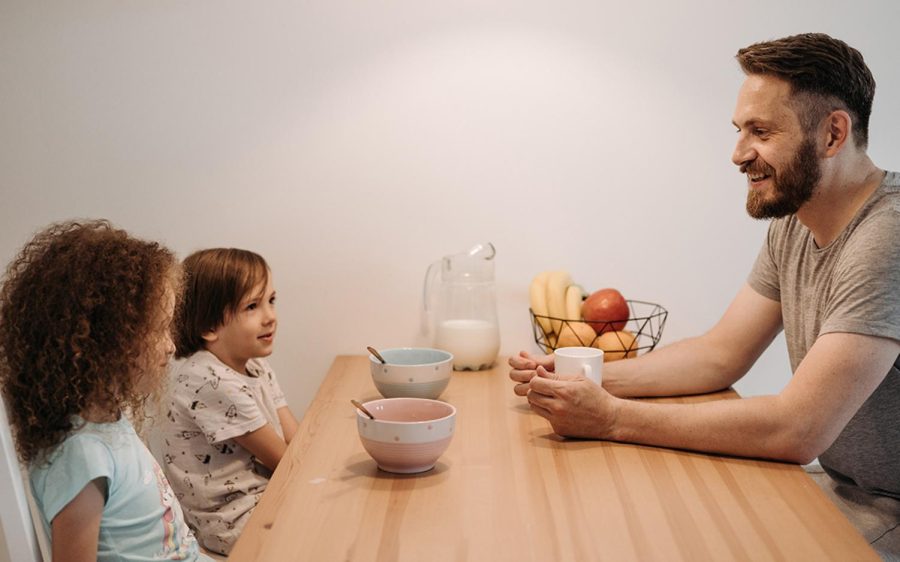EarthTalk: Talking to children about climate change
Psychologists emphasize the importance of focusing on solutions when talking with kids about climate change. (Photo by Pavel Danilyuk via Pexels, supplied by EarthTalk)
March 10, 2022
Dear EarthTalk: Any ideas on how to talk to my kids about climate change? — J. Rowe, Alea, Hawaii
As our understanding of the human-caused effects on our environment deepens, we find ourselves changing our habits, but we also carry the responsibility of preparing the next generation. A National Public Radio poll shows that 84% of parents think children should learn about climate change while only 45% of parents report having a conversation with their kids on the topic. Breaking the silence around climate change is a key step in developing intergenerational solutions.
Clinical psychologists such as Wendy Greenspun caution that parents take a “developmentally sensitive” approach when preparing for climate change conversations. David Sobel, an environmental educator at Antioch University agrees, recommending that children younger than 6 years old spend time outdoors to foster a close relationship with the natural world. Additionally, Sobel suggests that teaching good habits at a young age is also great place to start.
 A 2015 study from Brown University shows that routines and habits are formed by age 9, so lessons like turning off the lights to save energy and recycling to reduce plastic pollution will stick with children who learn to do so early on in life.
A 2015 study from Brown University shows that routines and habits are formed by age 9, so lessons like turning off the lights to save energy and recycling to reduce plastic pollution will stick with children who learn to do so early on in life.
Addressing tougher climate topics should wait until kids are 9 years old, according to Sobel. Keeping in mind that your child may have already heard about climate change, gauging how much they know can be a jumping off point.
To introduce the science, Robin Gurwitch, a professor and psychologist at Duke University, suggests using the “blanket analogy,” which explains that the Earth is protected by a layer, like a blanket, that keeps it at the right temperature. Climate change, caused by gases that people put into the air by using lots of energy, adds more blankets around the earth, making it too hot. If questions arise that you are unable to answer, take the opportunity to learn together and keep the conversation going.
The climate crisis is a difficult topic. While maintaining open communication, it is also crucial to avoid damaging the mental health of yourself or your children.
Susie Burke, senior psychologist at the Australian Psychological Society, suggests three big-picture responses to cope with climate anxiety. First, emotion-focused coping, which can include anything as simple as spending time with loved ones and taking a break. Next is problem-focused coping, which is to “try to mitigate the actual problem that is causing the stress.” The third is meaning-focused coping, thinking about “how to frame the problem so that we can continue to hope and not collapse into cynicism.”
While interpreting climate change for children involves teaching about seemingly unending challenges, it is important to emphasize the solutions. Children should know that there are scientists all over the world working hard to solve the problem and that regular citizens can help in meaningful ways. Suggest ways to be a part of the solution with small actions that you do together as a family, like a meatless Monday tradition or participation in the Turn It Off Campaign that encourages not idling your car when it is parked. These help make your children part of the solution as they learn about the problem.
EarthTalk is produced by Roddy Scheer and Doug Moss for the 501(c)3 nonprofit EarthTalk. See more at emagazine.com. To donate, visit earthtalk.org. Send questions to question@earthtalk.org.
Columns represent the views of the individual writer and do not necessarily reflect those of the North Coast Current’s ownership or management.
encinitas current, cardiff current




